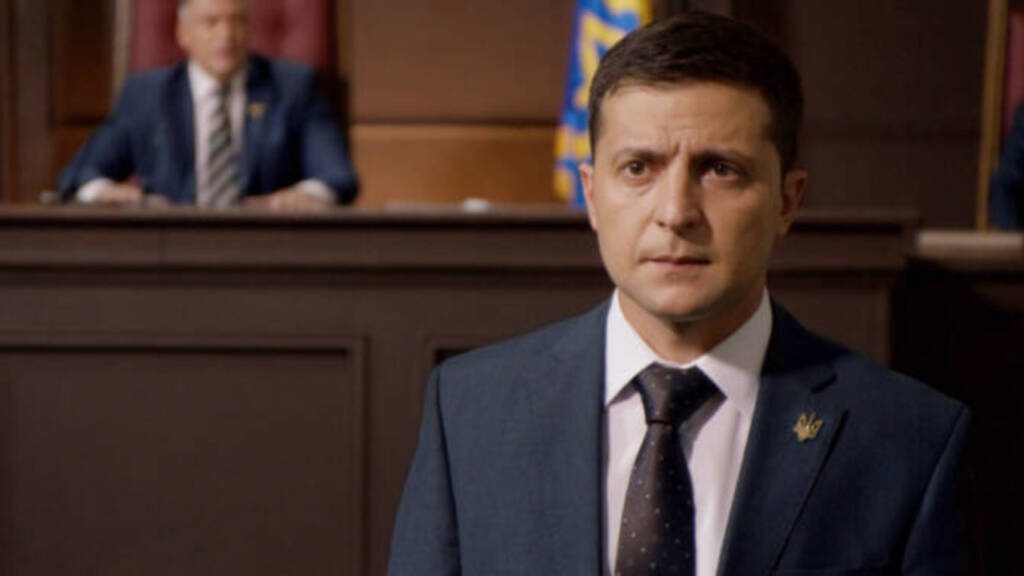In the midst of a war-ravaged nation, President Zelensky is striving to solidify his leadership. Dissatisfaction with his governance has reached a tipping point, as public sentiment reflects a growing weariness of his actions. Rumors of potential unrest in Kyiv hint at an imminent protest, signaling the citizens’ mounting discontent. Amid the specter of a civil upheaval, President Zelensky’s fears of being ousted from his position are palpable. In response to this precarious situation, he has unveiled a peculiar condition, indicative of the high-stakes struggle to maintain his hold on power.
Echoes of Euromaidan
Drawing parallels to the historical Euromaidan protest that led to the ousting of Yanukovych, President Zelensky is confronted with the looming specter of a comparable upheaval. The erosion of his approval rating underscores a diminishing public support. In response to the peril of losing his authority, Zelensky has resorted to stringent actions, including the prohibition of 11 pro-Russia parties. Further exhibiting his concerns, he has proposed an extension of the state of emergency under Martial law, effectively postponing the impending parliamentary elections slated for October. Recognizing the potential for civil unrest, Zelensky has sought intervention from both the United States and the European Union.
Volodymyr Zelenskyy has responded to recent calls by a US senator to announce elections in 2024 by asserting the possibility of conducting elections even during wartime. He stipulated that such an endeavor could transpire if the associated costs were shared among partners, legislative approval was secured, and widespread participation at the polls was ensured. Presently, elections cannot occur in Ukraine under the presence of martial law, which necessitates renewal every 90 days. Martial law is slated to expire on November 15, subsequent to the customary October date for parliamentary elections and preceding the usual timeframe for presidential elections in March 2024.
Read More: Zelensky was All Set to be Removed in a Coup but Things Changed Pretty Drastically
Fears of Ouster Emerge Amid Public Discontent
Distinguished American legislators visited Kyiv on August 23, emphasizing the necessity for Ukraine to display its distinctiveness through elections held during times of conflict. In an interview, Zelenskyy confirmed discussions with Senator Lindsey Graham, encompassing the financial aspect and requisite legal modifications. With election costs amounting to 5 billion hryvnia ($135 million) during peacetime, Zelenskyy contemplated the financial requisites during wartime and mentioned engaging external financial support. Additionally, accommodating voting access for numerous overseas constituents, particularly from the European Union, would necessitate further assistance.
Zelensky’s entreaty for Western intervention stems from a lucid understanding of prevailing sentiments within the nation. A substantial 56% of respondents foresee Ukraine incurring indebtedness to Western countries due to the provision of weaponry and aid during the ongoing conflict. Zelensky’s military engagement against Russia has resulted in the relinquishment of four strategically significant territories, amplifying concerns.
The populace exhibits a prevailing sense of wariness. This underscores a perceptible decline in Zelensky’s popularity among the domestic populace. The discernment that a prospective civil uprising, aimed at Zelensky’s removal, may materialize further compounds his apprehensions.
Bans, Martial Law, and International Intervention
These mounting apprehensions have compelled Zelensky to yield, manifesting in his agreement to conduct elections. However, this newfound willingness comes with a distinct caveat—namely, Western involvement. The convergence of factors, including a perceived loss of strategic territories, dwindling domestic popularity, and the apprehension of a potential uprising, collectively impels Zelensky’s acknowledgment of external influence. In essence, Zelensky’s overture for Western intervention reflects a strategic move to navigate the intricate landscape of domestic sentiment and potential upheaval.
Read More: Zelensky plays the ultimate prank on Biden with a $400m scandal
The West, particularly the US, has a historical record of engaging in poll manipulation, endorsing military coups, allocating financial resources, and disseminating political propaganda in foreign nations. A research unveils 117 instances of “partisan electoral interventions” between 1946 and 2000, encompassing approximately one in every nine competitive elections since World War II. Notably, almost 70% of these interventions were attributed to US involvement, and a substantial portion occurred even post-Cold War. Within the span of 1990 to 2000, 21 such interventions transpired, with 18 executed by the US.
A parallel scenario seems poised to unfold in Ukraine, albeit with the president’s cognizance.
Zelensky’s persistent measures reflect his intent to retain power. In response to apprehensions about potential power loss, he continues to employ stringent actions such as banning pro-Russia parties and extending the state of emergency. These steps, including the cancellation of parliamentary elections, emphasize his resolve. Seeking external support, he has turned to the West, seeking intervention to secure his tenure. This series of actions underscores Zelensky’s determination to remain in office amid mounting challenges and uncertainties.
Read More:
